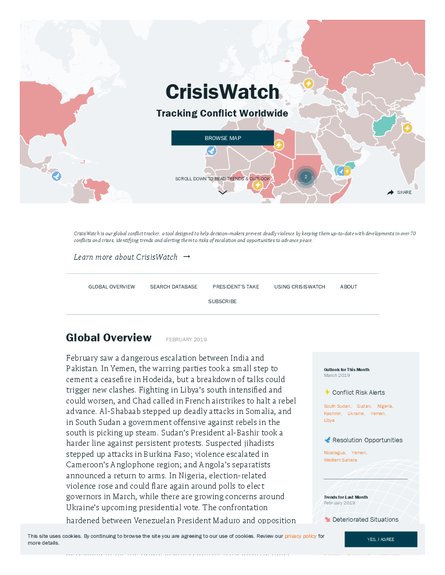
February saw a dangerous escalation between India and Pakistan. In Yemen, the warring parties took a small step to cement a ceasefire in Hodeida, but a breakdown of talks could trigger new clashes. Fighting in Libya’s south intensified and could worsen, and Chad called in French airstrikes to halt a rebel advance. Al-Shabaab stepped up deadly attacks in Somalia, and in South Sudan a government offensive against rebels in the south is picking up steam. Sudan’s President al-Bashir took a harder line against persistent protests. Suspected jihadists stepped up attacks in Burkina Faso; violence escalated in Cameroon’s Anglophone region; and Angola’s separatists announced a return to arms. In Nigeria, election-related violence rose and could flare again around polls to elect governors in March, while there are growing concerns around Ukraine’s upcoming presidential vote. The confrontation hardened between Venezuelan President Maduro and opposition leader Juan Guaidó. In Haiti, anti-government protests turned violent. U.S.-Russia relations deteriorated further in a worrying development for the future of arms control. On a positive note, Taliban and U.S. officials resumed talks on a deal for Afghanistan, negotiations aimed at ending the Western Sahara conflict are planned for March, and Nicaragua’s government resumed dialogue with opposition leaders, raising hopes for an end to the political crisis.